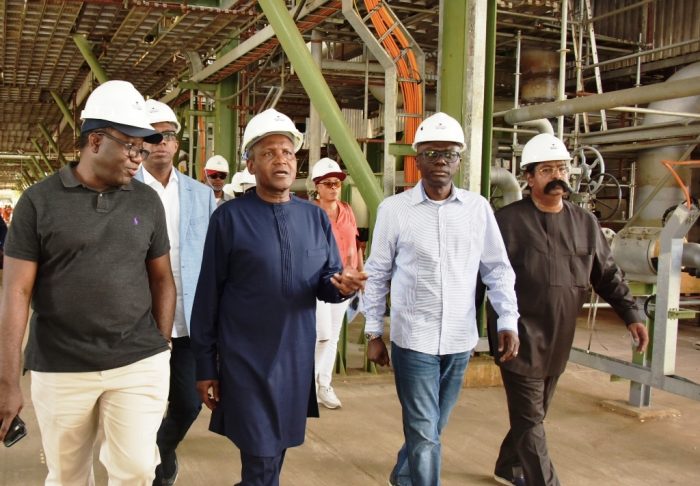There are no products in your shopping cart.
| 0 Items | £0.00 |


NIGERIA'S Dangote Petroleum Refinery is taking advantage of cheap oil imports from the US for as much as a third of its 650,000 barrels per day feedstock as it starts up production purchasing the crude and refining it for distribution across the domestic market.
In May last year, former president Muhammadu Buhari opened the Dangote Refinery and the president of the Dangote Group, Alhaji Aliko Dangote, promised that as from August 2023, Nigeria will not have any petrol supply problems. However, almost a year after the facility was officially opened, it is facing serious supply problems and with Nigerian crude oil production down, the refinery has had to resort to imports.
Over recent weeks, the plant has been shipping products while readying two units to enable petrol output that will deliver a long-promised transformation of the fuel market both in Nigeria and across the West African sub-region. For now, the refinery is running at about 300,000 barrels per day, nearly half its capacity, according to the average estimate of analysts at WoodMac, FGE and Citac.
Alan Gelder, the vice president of refining, chemicals, and oil markets at the consultancy firm, Wood Mackenzie, said: “Dangote is going to influence Atlantic Basin gasoline markets this summer and for the rest of the year. When the residual fluid catalytic cracking (RFCC) unit comes online, that’ll really shake things up because it alters the West African gasoline supply balance.”
Already, the Dangote complex has started shipping jet fuel, gasoil and naphtha as it widens to a full slate of products. Wood Mackenzie expects the gasoline-focused units to be online this summer, while other analysts expect the RFCC to take until the end of the year to get going.
Ronan Hodgson, an energy analyst at FGE, said: “The refinery is already having a sizable impact on product markets even running in its most stripped-back form at minimum rates. Units that boost diesel quality will also start up in the coming months."
Yesterday, the refinery announced a reduction in the price of diesel from N1,200/litre to N1,000/litre, a development that triggered excitement among operators in the downstream oil sector. Bloomberg reported that as much as a third of the oil shipped into the giant refinery so far has been US-grade WTI Midland.
This, according to the report, might likely continue as long as the foreign oil undercuts the price of local supplies. Nigeria released new rules earlier this week that will compel local oil producers to sell crude to domestic refineries in a bid to reverse the country’s reliance on imported refined products.